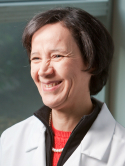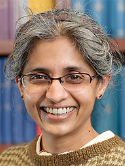| Abstract: |
Purpose: In this study, we first sought to evaluate whether individuals heterozygous for ATM mutations may have an increased susceptibility to radiation-induced breast cancer (BC) after treatment for Hodgkin's disease (HD). We next sought to determine the frequency of ATM variants in patients with Hodgkin's lymphoma, regardless of coexisting BC, compared with healthy volunteers. Experimental Design: Full sequence analysis of ATM was performed on cDNA from peripheral blood lymphocytes from 37 cases of BC after therapeutic radiation therapy for HD and 27 comparison cases with HD and no BC treated during the same time period. The frequency of ATM variants was analyzed in the total group of 64 cases of HD and compared to allele frequencies in 128 ethnically matched controls from the same geographical region. Results: No protein-truncating ATM mutations were observed in cases with HD with or without BC. Missense mutations were more frequent in the cohort with HD compared with patients with BC following HD (P = 0.02). The median time from HD to the development of BC was 18 years in patients with ATM variants compared with 16 years in those with no ATM variants (P = 0.04). Multiple ATM variants, including one homozygous mutation, were observed in 9 HD cases. Conclusions: Heterozygous protein-truncating or missense mutations of ATM were not associated with increased radiation-associated risk of BC after HD. The observation of multiple germ-line mutations and a homozygote suggests that rare ATM variants may constitute cancer-susceptibility alleles in a subset of cases. |










